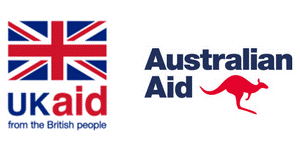On 7th – 9th December, the GSMA Ecosystem Accelerator team was invited as a mentor to the Jazz SDG Hackathon in Islamabad, Pakistan. The two-and-a-half day event hosted by Pakistan’s mobile operator Jazz (VEON Group) took place at the National Incubation Centre (NIC) Islamabad, attracting young entrepreneurs, coders and innovators. The event aimed to leverage technology as a tool to design civic solutions with a focus on contributing toward five UN Sustainable Development Goals (SDGs): SDG 3 Good Health and Well Being; SDG 4 Quality Education; SDG 5 Gender Equality; SDG 9 Industry, Innovation and Infrastructure; and SDG 11 Sustainable Cities and Communities. We wanted to share our key learnings from the hackathon through this blog post.
Technology-driven social development requires multiple and diverse stakeholders involvement
Jazz, together with a not-for-profit organisation Code for Pakistan, organised the fourth chapter of the hackathon to crack civic and social problems with a commercially sustainable solution while focusing on the five SDGs above. The hackathon attracted 100+ participants, comprising of 29 teams from across Pakistan. It was supported by industry experts through panel discussions, speakers, mentors, judges, amongst whom was the Parliamentary Secretary on Youth Affairs, Kanwal Shauzab.
Based on the diversity represented and variety of stakeholders from fields such as technology, development, innovation, entrepreneurship, for-profit and not-for-profit, it was apparent that creating social impact requires the input from multiple and diverse stakeholders. The SDGs, thereby, act as a common thread that help convene key individuals and bodies to work toward a common objective of effecting socio-economic change.
When mobile operators join hands with start-ups to work on SDGs
Jazz (VEON group) is at the forefront of private sector initiatives to foster the digital ecosystem of Pakistan. Through the hackathon, the mobile operator enabled the use of Jazz digital services such as location API, carrier billing, payment services, IVR, USSD etc. These services provide an enabling environment to young entrepreneurs who are creating innovative solutions to civic and social problems. During a panel session, Jazz’s team explained that the mobile operator is positioned to play an important role in Pakistan’s start-up ecosystem by not only participating in such events but also by offering selected start-ups to become part of Jazz Accelerator at the NIC.
“Pakistan ranks behind most countries in South Asia when it comes to Human Development Indicators and attaining the SDGs. The idea of such initiatives is to support the government in solving these challenges,” said Ali Naseer, Chief Corporate and Regulatory Affairs Officer at Jazz. These comments and some of the recent movement made by Jazz in the Pakistani start-up ecosystem space is helping to accelerate the growth of start-ups in the country. Jazz’s movement shows there are tremendous opportunities to leverage the increasing adoption of mobile phones and growth in mobile network coverage, to positively impact people and the communities in innovative ways.
The winners
Participants worked on their projects over the course of two-and-a-half days, and then pitched to the judges’ panel which comprised of nine judges, three of whom were women. Other than cash prizes of 150,000 Pakistani Rupee (USD$1,078), the winning team was offered a wildcard entry into Jazz Accelerator to help launch and scale their idea. The First prize went to Team Vixen’s Smart Bra, an undergarment equipped with sensors to detect symptoms of breast cancer at early stages. The solution will be further developed and tested with the help of Jazz and Pakistani government providing the required infrastructure support from a technology and health perspective. The second prize went to FideTech and their water impurity testing solution and the third prize went to Dost, a data-driven community awareness and support platform geared towards improved mental health.
Moreover, there were other interesting ideas that caught the audience’s attention. Examples include an idea from a team called JASONS which developed a proposal based on smartphone application which utilises excess food from restaurants, hotels and homes in order to feed the hungry and provide to those in need. Others include a smart solar and energy solution presented to fight energy crisis, a smart waste management solution to resolve urban solid waste management using smart bins.
We would like to take this opportunity to thank the teams of Code for Pakistan, Jazz, NIC and other organisers for inviting us to their respective events and for allowing us to contribute.
The Ecosystem Accelerator programme is supported by the UK Department for International Development (DFID), the Australian Government, the GSMA and its members.



